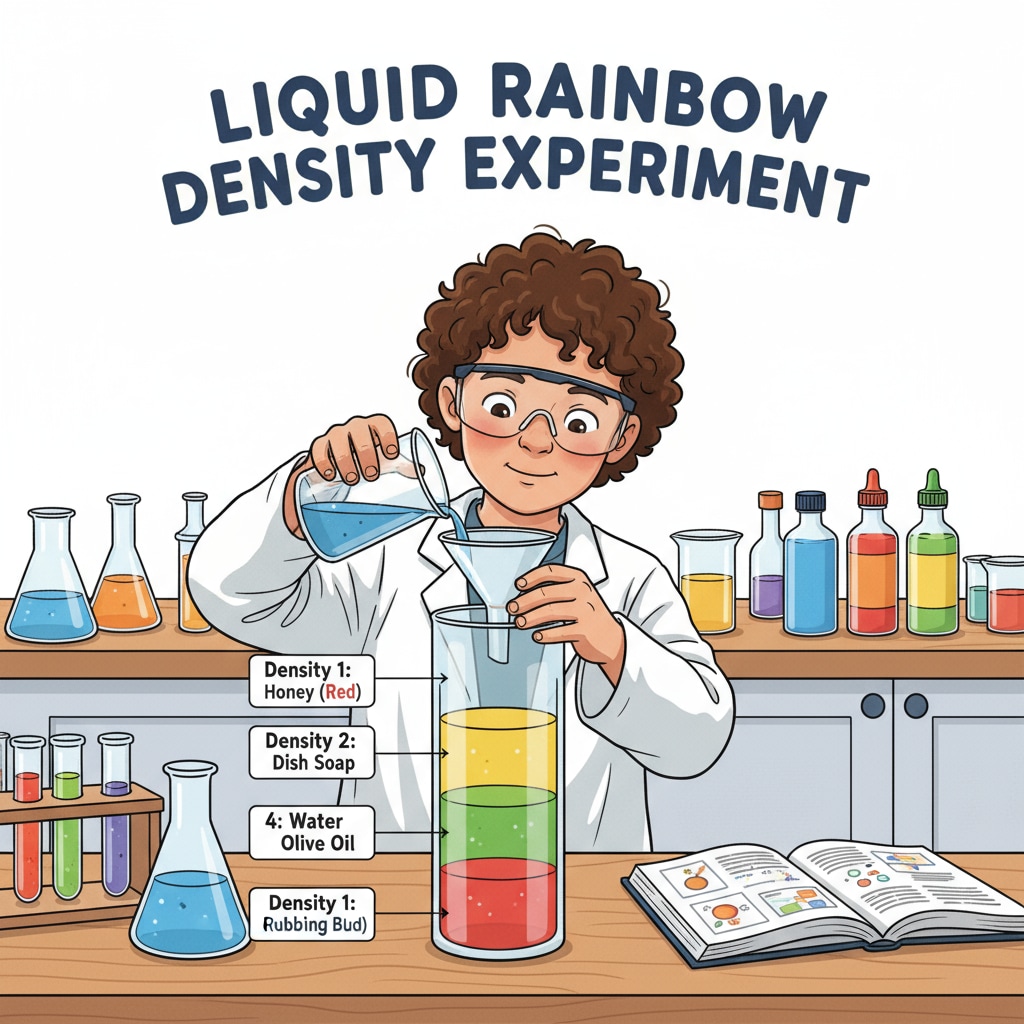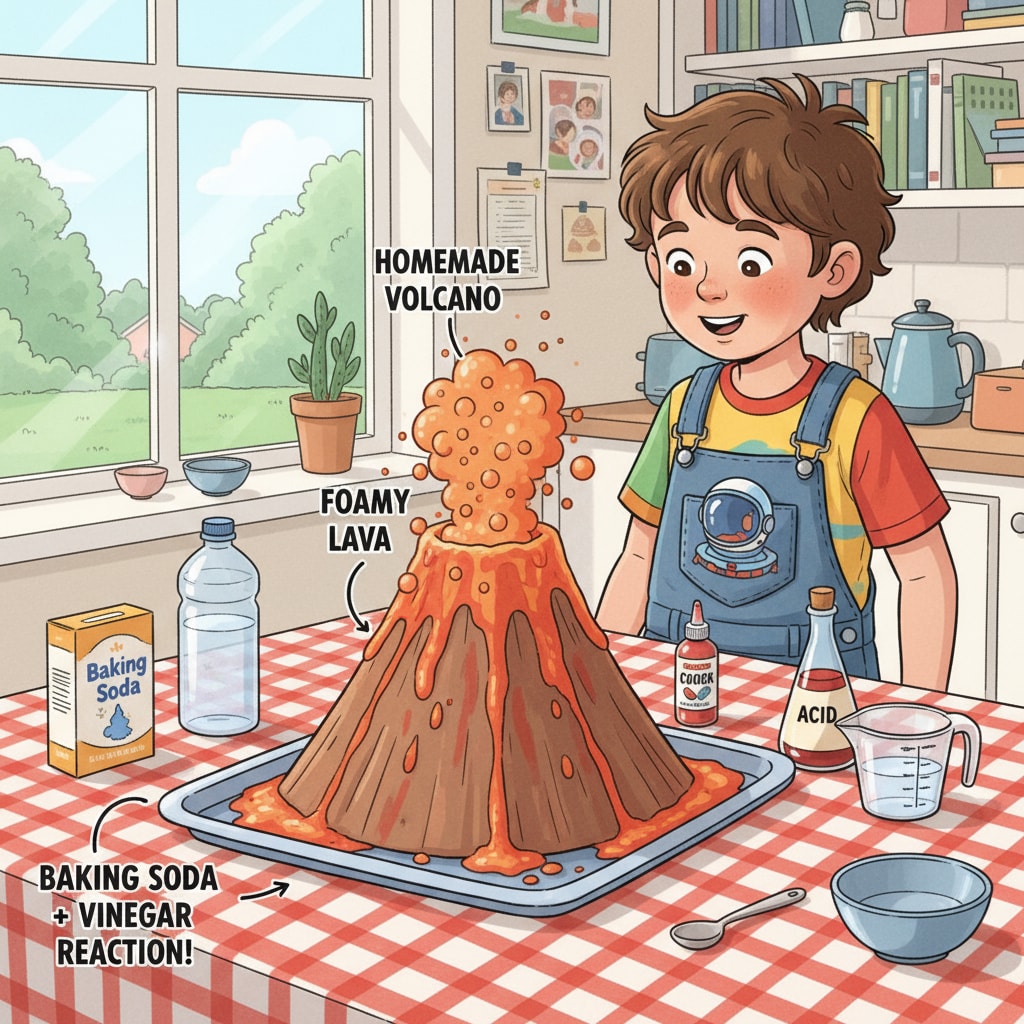Science experiments, family activities, and DIY science are an excellent way to engage children in learning. Transforming your home into a science lab can be both fun and educational. Here are 10 exciting experiments that will spark your child’s scientific curiosity.

Exploring Density with a Liquid Rainbow
Density is an important concept in science. This experiment allows kids to observe how different liquids with varying densities layer on top of each other. All you need are honey, dish soap, vegetable oil, rubbing alcohol, and food coloring. Slowly pour each liquid into a clear glass. You’ll see a beautiful liquid rainbow form. This hands-on activity helps children understand density in a fun way. Learn more about density on Wikipedia
Making a Volcano Erupt
Volcanoes are fascinating natural phenomena. Recreate a volcanic eruption at home using baking soda, vinegar, dish soap, and food coloring. Build a volcano structure out of clay or paper mache. Then, pour vinegar into the opening and add a spoonful of baking soda. Watch as the mixture fizzes and erupts like a real volcano! This experiment teaches kids about chemical reactions. Read about chemical reactions on Britannica

These experiments not only provide entertainment but also offer valuable learning experiences. Through hands-on DIY science activities, children can develop their observation skills, logical thinking, and problem-solving abilities. Incorporating science experiments into family activities is a great way to bond while nurturing a love for science.
Readability guidance: Each experiment is presented in a clear and concise manner. The use of simple language makes it easy for kids and parents to understand. By using transition words like ‘then’ and ‘watch as’, the process of each experiment is easy to follow.


